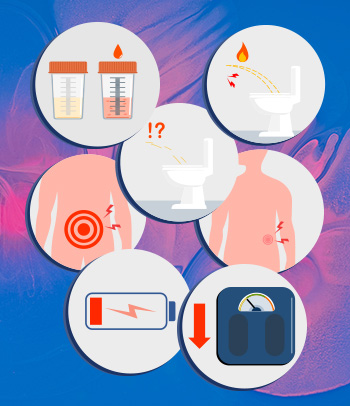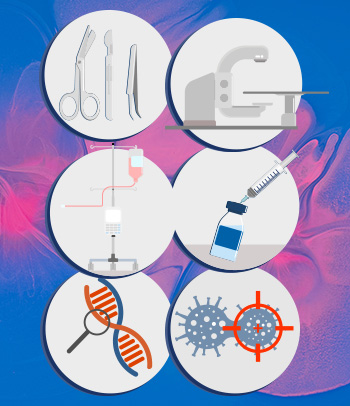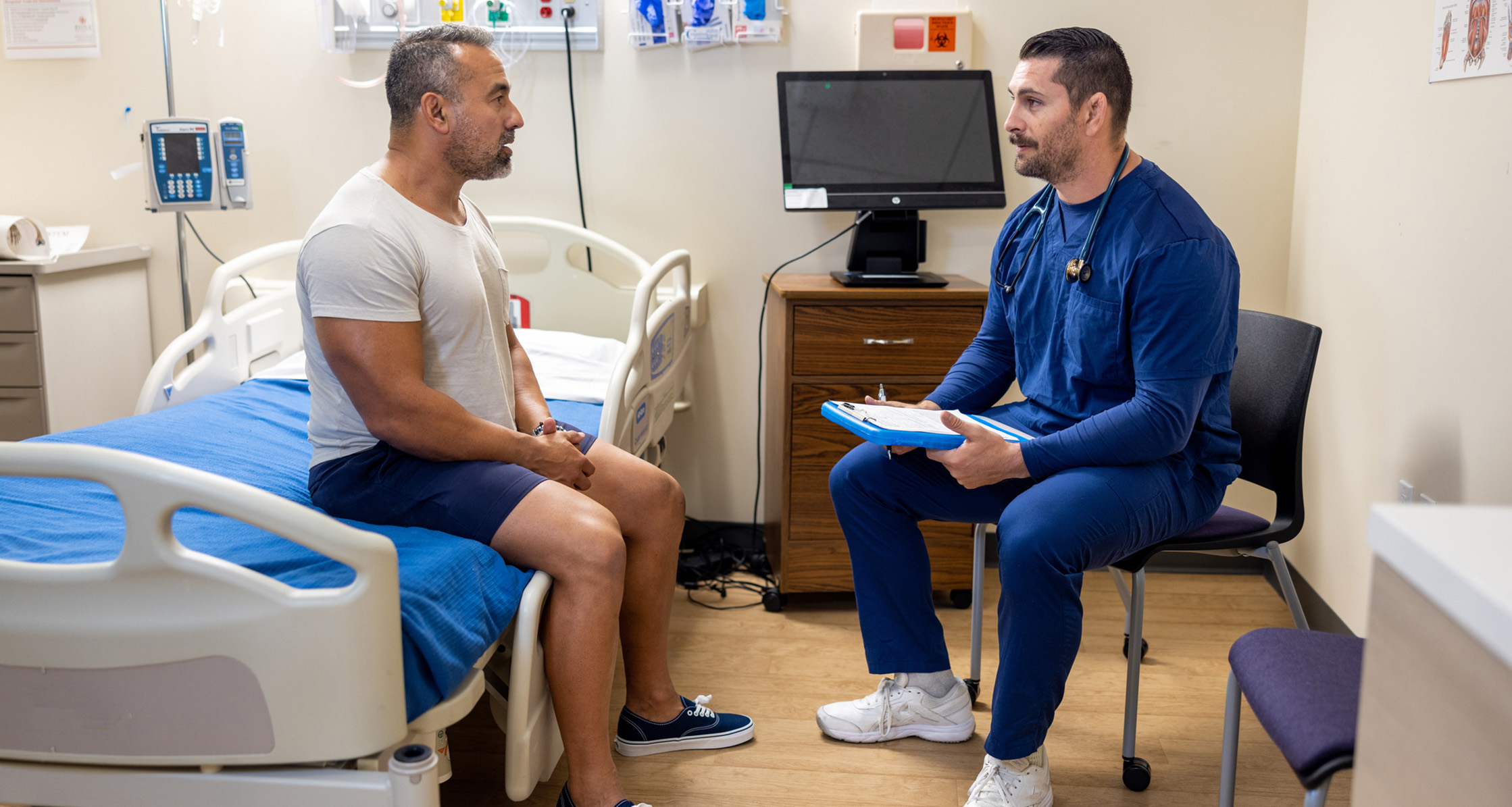Be sure to talk to your health care provider about any symptoms you may have related to your bladder health.
Bladder cancer is the fourth most diagnosed cancer within the Department of Veterans Affairs (VA) with more than 3,000 Veterans diagnosed with bladder cancer every year. Rates of bladder cancer among Veterans are higher than the general population. Like many cancers, early diagnosis is critical to successful treatment and recovery, so it’s important to understand as much as we can about this disease.
Learn more about bladder cancer, the symptoms and risk factors related to it, as well as the treatments and resources available to Veterans diagnosed with bladder cancer.
What Is Bladder Cancer?
Bladder cancer happens when the cells in the bladder start to grow out of control. Your bladder is a hollow balloon-shaped organ where urine is stored before it passes through the urethra and leaves your body.
Most bladder cancer is described as non-muscle-invasive bladder cancer, which means it’s cancer that starts in the cells that make up the lining inside the bladder, but it has not reached the muscle wall of the bladder. As the cancer grows, it can spread through the lining and into the muscle wall of the bladder, which is called muscle-invasive bladder cancer.
What Are the Symptoms of Bladder Cancer?
Here are some common symptoms associated with bladder cancer:
- Blood in your urine (this is the most common symptom)
- Painful or urgent urination
- A feeling like you must urinate even when your bladder isn’t full
- The inability to urinate
- Abdominal pain
- Lower back pain
- Fatigue
- Unintended weight loss
- Appetite loss
If you have any of these symptoms, the best thing to do is to discuss them with your health care provider. Some of us may feel embarrassed or strange talking to a health care provider about issues related to going to the bathroom or urinating, but open communication is important to ensure you’re on top of your bladder health.
Keep in mind that having one or more of these symptoms doesn’t mean you have bladder cancer. It could be a sign of something else such as a urinary tract infection or kidney stones. But if you’re open and forthcoming with your provider, you can figure it out together. Remember, early diagnosis is the best way to ensure successful treatment and recovery.
Am I At Risk for Bladder Cancer?
Any one of us can develop bladder cancer, but there are certain people who are at an increased risk of developing it. Here are some risk factors to consider:
- Smoking – Smoking is the most common risk factor for bladder cancer. The longer you smoke and the more you smoke, the greater your risk becomes for developing bladder cancer. Make a Plan You Can Stick To: Quit Smoking Today offers several helpful tips and resources for Veterans who are ready to quit.
- Chemical exposure – Exposure to certain chemicals can increase your risk for bladder cancer. For example, if you were exposed to Agent Orange, PFAS or Camp Lejeune’s contaminated drinking water during your military service, you may be at higher risk for developing bladder cancer. If you’re not sure what chemicals you may have been exposed to during your service, talk to your VA health care provider or contact your local VA Environmental Health Coordinator. Starting in 2021, bladder cancer became a presumptive condition, which means Veterans don’t need to prove it started during – or got worse because of – their military service. If VA denied your claim in the past, you can have your case reviewed again.
- Your sex, age and race – According to the American Cancer Society, bladder cancer is more common among males than females, more common among white people than other races and more common among people older than 55 years of age.
- A family history of bladder cancer – If someone in your family has bladder cancer, you are at higher risk for getting it yourself.
How Is Bladder Cancer Diagnosed?
If you and your health care provider are concerned about symptoms related to bladder cancer, your health care provider will most likely ask you to provide a urine sample as a first step toward diagnosis. Your sample can be checked for blood in your urine, abnormal cells, urinary tumor markers and more. Your health care provider may also look inside your bladder and urethra to check for abnormal areas. A thin tube may be inserted to collect tissue samples for biopsy.
Depending on a combination of factors, such as your symptoms, medical history, risk factors, and the results of your urine lab tests and a physical exam, your health care provider may recommend more tests to make a final diagnosis.
What Treatments Are Available? 
Once you have confirmed a diagnosis, your health care provider will be able to determine what type of bladder cancer it is, what stage it is and whether it has spread. The earlier you’re able to diagnose the cancer, the more successful your treatment will be.
There are different types of treatments available to help Veterans who have been diagnosed with bladder cancer, and VA aims to provide the best treatment possible for all Veterans living with cancer.
You and your cancer care team will work together to decide your treatment plan, which may include more than one type of treatment. Your treatment plan will take into consideration your overall health, the stage and grade of the cancer, your own preferences and more. Treatments can include:
- Surgery
- Radiation therapy
- Chemotherapy
- Immunotherapy
In addition, VA has a new gene therapy treatment, the first and only FDA-approved gene therapy to help fight non-muscle-invasive bladder cancer. This therapy is a targeted treatment that works with the body’s immune cells and delivers a gene that encodes an interferon protein to your bladder so that it can fight cancer. Read more about the success of this gene therapy treatment and hear from the first Veteran to receive it.
Additional Information
- The National Cancer Institute provides a lot of helpful information related to bladder cancer, including images of the urinary system, an explanation of the types of bladder cancer, treatment options and much more.
- VA’s National Oncology Program is the home of cancer care at VA, diagnosing and treating more than 56,000 Veterans annually. Learn more about VA’s research studies, its development of new technologies, the use of evidence-based therapies and much more.
- Let’s Talk About It: Your Bladder Health has a lot of information and tips for maintaining a healthy bladder.
Staying on top of your health and your health care means being willing to discuss the more personal stuff that goes on in your body. Be sure to talk to your health care provider about any symptoms you may have related to your bladder health.







